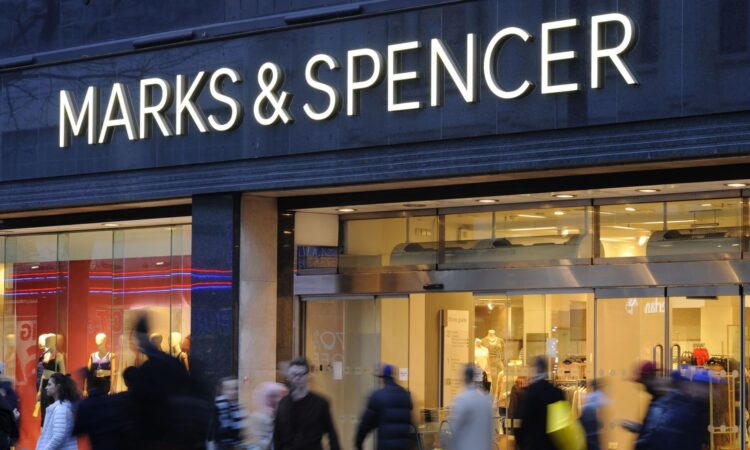
There is a wealth of companies facing promotion and relegation from the index of the biggest companies by market value, including other household names.
By James Sillars, Business reporter @SkyNewsBiz
Marks & Spencer (M&S) has secured a return to the FTSE 100 share index, four years after the bellwether retailer was relegated amid a battle for its very future.
FTSE Russell, which manages the constituents of UK stock markets, carries out quarterly reviews based on the companies’ market values.
In addition to M&S, it also promoted drugmakers Dechra and Hikma from the FTSE 250 along with technical products provider Diploma.
Asset manager abrdn, insurer Hiscox, autocatalyst maker Johnson Matthey and housebuilder Persimmon were demoted from the top flight to the mid-cap FTSE 250; the latter a casualty of the current housing market turmoil.
The review was based on their share prices at the market close on Tuesday and the changes will take effect at the start of trading on Monday 18 September.
The headline name to secure promotion is undoubtedly M&S.
It had traded as a FTSE 100 company since the index was founded in 1984 but was expelled in September 2019 as it battled challenges on many fronts.
The company had been slow to adapt to rising demand for online shopping and was lumbered with a tired, expensive store estate that was unable to compete with rivals’ often cheaper fashion offerings.
The clothing itself was also widely seen as behind the times.
Food has always been its strongest performer in terms of growth but investors took fright in February 2019 when M&S announced its £750m joint venture partnership with Ocado.
It even brought back its best-known motto “this is not just food” PR campaign that year in a bid to bolster sales and boost shareholder confidence but it was not enough to prevent the drop.
M&S had a market value of £3.7bn when it was relegated.
That number has since recovered to £4.4bn, with shares up 70% this year on the back of a sustained improvement in its core numbers thanks to successive turnaround plans finally bearing fruit, the latter led by chief executive Stuart Machin since May 2022.
Its last set of annual results, which covered the 12 months to April, showed an 11.5% rise in clothing and home sales while food revenue was 8.7% higher.
Susannah Streeter, head of money and markets at Hargreaves Lansdown, said of its achievements: “The focus of the M&S brand on both quality and price has been a clear advantage and its stock selection has received renewed loyalty from shoppers.
“Shrinking its estate, and closing larger stores in town centres, is paying off, with smaller shops in retail parks offering easy to use click and collect services.
“But there are still challenges ahead, with the longer-term outlook for retail hard to map.”
Big fall in retail sales in July
Those challenges include the continuing, and shifting, effects of the cost of living crisis on households.
Mr Machin has placed his focus on achieving sustainable growth through a relentless focus on customers.
He told the Mail on Sunday in May: “‘I don’t think we will ever declare victory, definitely not under my leadership.”






